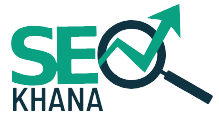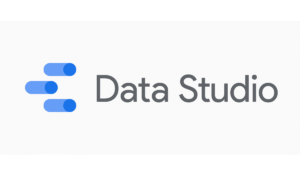In the digital age, speed is everything—especially when it comes to how quickly your website loads. Page speed, which refers to the time it takes for a webpage’s content to fully appear in a user’s browser, plays a crucial role in determining how users interact with your site. With just seconds to capture a visitor’s attention, even a slight delay can lead to higher bounce rates, decreased engagement, and lost revenue. Whether you’re a blogger, an e-commerce store owner, or managing a corporate website, optimizing for speed is no longer optional—it’s essential.
Beyond user behavior, search engines like Google now factor speed into their ranking algorithms. This means a slow-loading website isn’t just frustrating to your audience; it can also hurt your visibility in search results. Fortunately, with the right tools and strategies, improving your website’s performance is achievable. In this article, we’ll explore the fundamentals of page speed, why it matters for SEO and user experience, and practical steps you can take to make your website faster and more efficient.
What is Page Speed?
Page speed refers to the amount of time it takes for a web page to fully load and display its content to users. In simpler terms, it measures how quickly visitors can see and interact with your website after clicking a link or entering a URL.
It’s important to distinguish between Page Speed and Site Speed:
- Page Speed focuses on the load time of a specific single page on your website.
- Site Speed refers to the average load time across multiple pages on your entire site.
Search engines like Google use various metrics to evaluate speed, such as First Contentful Paint (FCP) and Largest Contentful Paint (LCP), which reflect how fast content appears on the screen. Tools like Google Page Speed Insights analyze these metrics to provide detailed reports and recommendations for improvement.
A fast page speed is crucial because users expect quick access to information. Slow-loading pages often lead to higher bounce rates, lower user satisfaction, and negatively impact search rankings. Therefore, optimizing your speed is a foundational step in effective SEO and user experience strategies.
Why Is Page Speed Important for SEO?
Page speed plays a vital role in SEO because it directly affects both user experience and search engine rankings. Here’s why it matters:
Improves User Experience
Fast-loading websites provide a smooth and enjoyable experience for visitors. When pages load quickly, users can access information or complete actions without frustration. Conversely, slow pages lead to impatience, causing visitors to leave before the site fully loads, increasing your bounce rate.
Reduces Bounce Rate
A slow website often causes visitors to abandon the site quickly. Search engines interpret high bounce rates as a sign that the site might not be relevant or valuable, which can negatively impact your rankings.
Boosts Conversion Rates
For e-commerce and business sites, speed is directly linked to conversions. Studies show that even a one-second delay in page load time can lead to significant drops in sales or leads. Faster pages keep users engaged and more likely to complete purchases or inquiries.
Google’s Ranking Factor
Google explicitly uses page speed as a ranking factor, especially for mobile searches. With the introduction of Core Web Vitals, Google assesses how quickly content loads, how soon it becomes interactive, and visual stability. Sites with better speed metrics tend to rank higher in search results.
Enhances Mobile SEO
Since mobile users often rely on slower or less stable connections, speed is even more critical for mobile SEO. Fast mobile pages improve accessibility and user satisfaction, which Google rewards with better rankings.
Supports Local SEO
For businesses targeting local audiences, fast-loading pages improve the chances of appearing prominently in local search results and map listings, driving more foot traffic and local engagement.
How Does Page Speed Affect User Experience?
Page speed has a direct and powerful impact on user experience (UX). Here’s how it influences the way visitors perceive and interact with your website:
- First Impressions Matter
When users click a link to your website, they expect the page to load almost instantly. If your site takes too long to load, visitors may assume it’s unreliable or outdated, causing a negative first impression that can be hard to reverse. - Reduces Frustration and Bounce Rates
Slow-loading pages frustrate users, leading many to leave your site before it even fully loads. This increases the bounce rate — a key signal that tells search engines your site isn’t meeting user needs. Faster pages keep visitors engaged and encourage them to explore more content. - Improves Accessibility
Users access websites from various devices and network speeds, especially mobile users on slower connections. A fast-loading site ensures that all users, regardless of their device or connection, can access content smoothly without delays or errors. - Encourages Longer Visits and Repeat Traffic
A quick and responsive website encourages users to stay longer, explore multiple pages, and return in the future. This builds trust and loyalty, which can lead to better brand recognition and customer retention. - Supports User Interactions and Conversions
For sites with interactive elements like forms, shopping carts, or booking systems, speed is crucial. Faster page loads mean users can complete actions with less wait time, reducing drop-offs during critical steps like checkout or sign-ups. - Enhances Perceived Professionalism and Credibility
A fast website reflects well on your brand’s professionalism. Users often equate speed with reliability and trustworthiness, making them more comfortable engaging with your content or making purchases.
What Tools Can I Use to Measure Page Speed?
To optimize your website’s performance effectively, you first need to measure how quickly your pages load and identify any bottlenecks. Fortunately, there are many tools designed to help you perform a thorough page speed test. Whether you’re checking desktop or mobile performance, these tools provide detailed insights and actionable recommendations to enhance your site speed. In this section, we will explore the best tools available for running a website page speed test and understanding your site’s loading behavior.
Google PageSpeed Insights
Google PageSpeed Insights is one of the most popular and reliable tools for measuring page speed. It analyzes your site’s performance on both desktop and mobile devices and provides a score based on key metrics such as First Contentful Paint (FCP) and Largest Contentful Paint (LCP). Beyond scoring, it offers specific suggestions for improvement, making it an essential tool for any page speed optimization service.
Page Speed Insights
This tool, often used interchangeably with Google PageSpeed Insights, gives you detailed data on how quickly your page loads and how users experience it. It highlights issues like render-blocking resources, large image sizes, or slow server response times, helping you focus your page speed optimization efforts effectively.
Page Speed Checker Tools
There are numerous online page speed checker tools available that allow you to quickly perform a page speed test online. These platforms often provide additional features such as testing from different locations, device types, and connection speeds. This variety helps you get a well-rounded view of your website’s speed.
Mobile Page Speed Test
Since mobile users account for a large portion of web traffic, running a mobile page speed test is crucial. Many tools, including Google PageSpeed Insights, allow you to simulate mobile device performance, ensuring your site is optimized for smartphones and tablets. Improving mobile page speed directly enhances your SEO and user experience on smaller screens.
Additional Website Page Speed Test Tools
Other tools like GTmetrix, Pingdom, and WebPageTest complement Google’s offerings by providing different perspectives, waterfall charts, and historical performance tracking. These can be especially helpful when conducting a full technical SEO audit.
Professional Page Speed Optimization Services
If you want to save time and get expert help, consider hiring a page speed optimization service like SEO Khana. Experts can analyze your site using these tools and implement proven strategies to boost your loading speed or lazy loading improve your rankings, and increase conversions.
What Are the Common Causes of Slow Page Speed?
Slow page speed can negatively impact user experience and search engine rankings. Understanding the common causes helps you address these issues effectively. Here are some key reasons why a website might load slowly:
- Large, Unoptimized Images: Heavy images that aren’t compressed or properly sized can significantly delay page loading times.
- Excessive HTTP Requests: Too many scripts, stylesheets, and plugins increase the number of server requests, slowing down your site.
- Slow Server Response: If your web hosting server is slow or overloaded, it delays how fast your content reaches users.
- No Browser Caching: Without caching, returning visitors must reload all page elements, increasing load times.
- Too Many Redirects: Multiple redirects create extra loading steps and slow down page speed.
- Unminified Code: Large CSS, JavaScript, or HTML files that aren’t minified cause longer load times.
- Heavy Use of Third-Party Scripts: External scripts like ads or trackers can slow your page, especially on mobile.
To pinpoint these issues, using a reliable page speed checker or performing a website page speed test online is essential. Tools like a mobile page speed test help identify how your site performs on smartphones, which is crucial for SEO. For comprehensive fixes, many businesses turn to professional page speed optimization services or a trusted page speed optimization service to improve loading times and overall performance.
Is Page Speed Different for Mobile and Desktop?
Yes, page speed can be different for mobile and desktop—and understanding the distinction is essential for effective SEO and user experience optimization.
Mobile devices often operate under different conditions compared to desktops, such as slower network connections, smaller screen sizes, and less powerful processors. As a result, a page that loads quickly on a desktop may load much more slowly on a mobile device. This difference is why search engines like Google evaluate mobile page speed separately through tools like Google PageSpeed Insights and other mobile page speed test tools.
To ensure optimal performance across all devices, it’s important to run both desktop and mobile versions of a website page speed test or use a page speed test online tool that includes mobile analysis. If your mobile loading speed is lacking, consider consulting a professional page speed optimization service to identify specific issues and implement targeted solutions that enhance performance for mobile users.
Does Page Speed Affect Ads and Monetization?
Yes, page speed directly affects ads and monetization. A slow-loading website can lead to lower ad viewability, reduced impressions, and higher bounce rates—especially on mobile devices. When users leave before the ads load, you lose valuable revenue opportunities. website speed test can help identify these delays and their impact on ad performance.
Moreover, advertisers often favor faster sites in programmatic bidding, meaning better it can lead to higher-paying ads. Investing in page speed optimization services ensures your site loads quickly, enhances user engagement, and maximizes monetization potential. Simply put, the faster your site, the more you earn.
How SEO Khana Helps You Optimize Page Speed
Certainly! Here’s how SEO Khana helps you optimize page speed — in clear bullet points, with all required keywords naturally included:
- SEO Khana begins with a detailed technical SEO audit service to identify all the elements slowing down your site, such as large images, unused code, and inefficient scripts.
- Their on page SEO optimization ensures that your website structure, headings, and internal linking are streamlined for both faster loading and better search engine performance.
- For online stores, SEO Khana provides tailored solutions for E-commerce websites, focusing on improving load time, product page performance, and mobile responsiveness to boost conversions.
- As the best SEO company, SEO Khana uses advanced tools and best practices to meet Google’s page speed standards and improve your overall website efficiency.
- Their local SEO expert team helps optimize your site for location-based searches while ensuring fast load times for nearby mobile users.
- website speed is an essential part of their complete SEO services, helping reduce bounce rates, improve rankings, and create a better user experience.
By working with SEO Khana, you gain a strategic partner that focuses on both speed and SEO to grow your traffic and online success.
In conclusion, page speed is not just a technical detail—it’s a critical factor that impacts your website’s SEO performance, user satisfaction, and conversion rates. A slow-loading website can result in higher bounce rates, lower rankings, and missed revenue opportunities, especially on mobile devices. That’s why investing in tools like a speed test tool is essential to understanding how your site performs in real-world conditions.
Whether you’re using Google Page Speed these tools offer valuable insights into what’s slowing your site down. For more thorough analysis, a speed tool checker online can help uncover hidden issues affecting both desktop and mobile performance. Running a mobile is especially important in today’s mobile-first world. And when technical fixes are needed, partnering with a trusted provider of it can dramatically improve load times, enhance user experience, and boost your visibility on search engines. Simply put, faster pages mean better results—for users and for your business.







